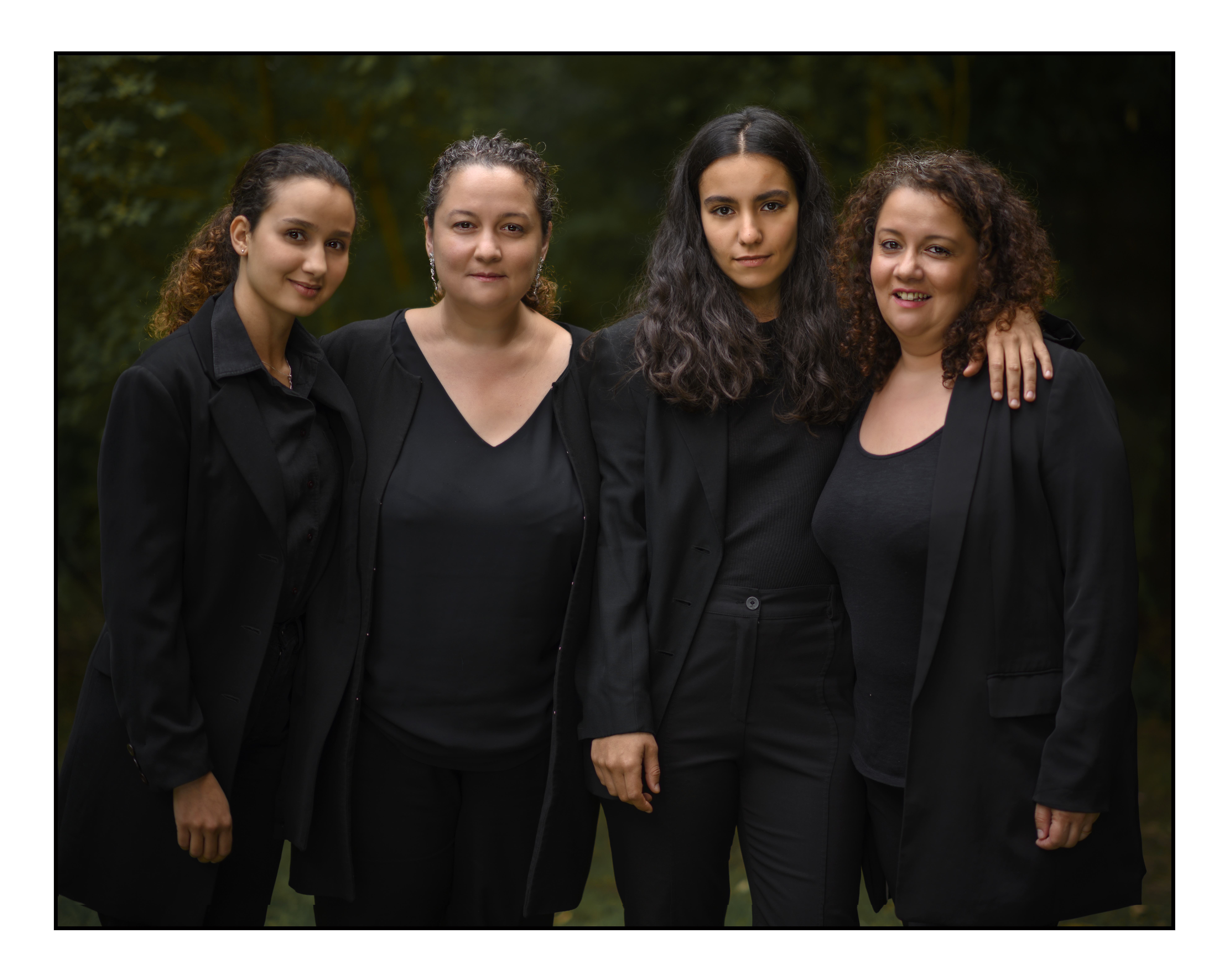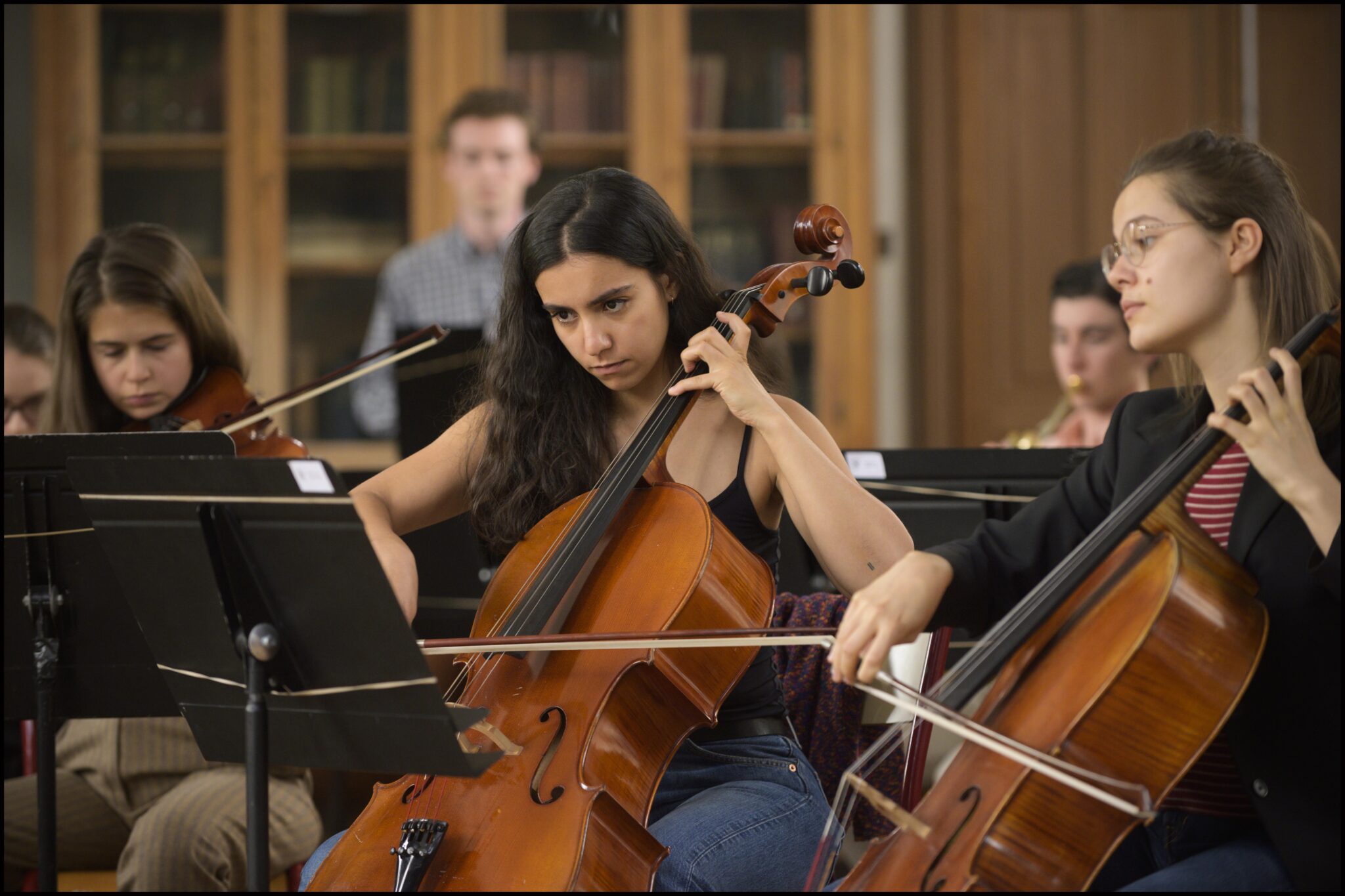Source: Potential Films
From the film’s opening scene, I immediately knew that I would enjoy Marie-Castille Mention-Schaar’s Divertimento (2022). As the opening credits rolled in, the iconic snare drum ostinato from Ravel’s Bolero (1928) gradually crescendoed, filling me with a sense of keen nostalgia for those years spent practicing clarinet throughout school. I have always been drawn to classical music in its timelessness and technical mastery, the way it can transport us across time and place, across cultures and history. While it is undeniable that classical music remains elitist, it nevertheless has the power to connect all listeners, and by extension, individuals and communities. This was at the core of Divertimento, a film screened as part of the 2024 Alliance Française French Film Festival.
Based on the true story of one of the world’s leading female conductors, Divertimento follows the story of 17-year-old, classical-music-obsessed Zahia Ziouani (Oulaya Amamra), an Algerian girl living in the underprivileged Parisian suburbs of 1995. Along with her twin sister Fettouma (Lina El Arabi), an aspiring cellist, the twins venture into the elite world of Parisian classical music where they face severe prejudice based on their Algerian background and class. The film follows the girls’ journey, documenting not only these struggles but also the struggles familiar to any aspiring musician — the film is layered with scenes of intense practice, warm-ups, and competitive players.
Most importantly, the film highlights the joy of playing music. Indeed, Zahia and Fettouma create their own orchestra, Divertimento, which ultimately helps them follow their dreams as professional conductors and musicians respectively. Through Divertimento, the two sisters take control of their musical prowess while facilitating a welcoming space for underprivileged musicians to follow their dreams.
Winner of the 2023 Stony Brook Film Festival’s Special Recognition Closing Night Film Award and the Audience Award of the Best Feature, Divertimento successfully showcases the determination, passion, and courage exhibited by the Ziouani twins. In the words of the film’s director, Mention-Schaar:
“[Zahia and Fettouma] didn’t just fight for themselves; they also wanted others to succeed. They wanted to pass on what their parents had passed on to them. Classical music is a special thing: you don’t hear it in all walks of life. Zahia and Fettouma wanted — and they still want — everyone to have access to it.”

Oulaya Amamra and the real life Zahia Ziouani, Lina El Arabi and the real life Fettouma Ziouani. Source: Potential Films.
The idea of granting “everyone” access to classical music, and the power engendered from this equality, is a key concern of Divertimento. Specifically, the film emphasises how class and gender can be barriers to succeeding in the classical music world, a world deeply entrained in elitism.
At the beginning of the film, the twins face much prejudice when attending the prestigious music school, Lycée Racine in Paris. For example, when trying to conduct the school’s orchestra, Zahia is ignored and ridiculed as her classmates yell out, “the suburb girl has dressed up to the nines.”
The film also has a strong focus on gender prejudices faced by women in classical music, particularly in 1990s France. When conducting her school orchestra, Zahia is repeatedly told to “know [her] place” as “conducting isn’t a woman’s job.” Moreover, her classmates refuse to refer to her by the proper label for conductor, ‘maestro’, as it is “deserved for men.” It is Zahia’s fierce and unwavering resistance against these prejudices that makes her an extremely likeable character. Amamra’s incredible acting was the key factor in making the audience root for Zahia.
A strong theme featured throughout is the role of music in allowing one to be free from this gendered practices within institutions. Divertimento includes repeated shots of Zahia conducting an imaginary orchestra on the rooftop terrace of her large suburban apartment block. Usually set during the night with the shining city lights accompanying the background, these scenes grant us an intimate insight into the protagonist’s triumphs and struggles.
Ultimately, Divertimento catalyses us to consider the power of classical music to connect us and bring us joy, even if the classical world is and remains an elitist environment. This is especially epitomised in how Ravel’s Bolero (1928) bookends the film. Those familiar with this canonical orchestral work will know that the melody is passed to many musicians in the orchestra, with the famous snare drum ostinato mirroring a heartbeat that remains a constant presence for the entire 15-minute piece. It is this heartbeat that empowers the film’s musicians to reach new heights of success, perfectly echoed in Zahia’s simple, yet impactful statement: “Life is music.”
Divertimento (2023) played at the 2024 Alliance Française French Film Festival.





